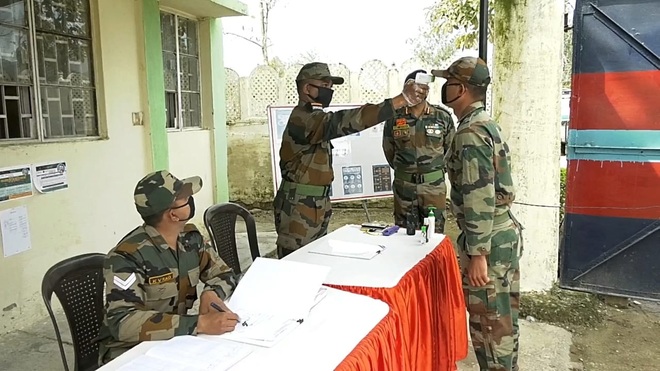
Lt Gen KJ Singh (retd)
As India takes on Covid-19, I am reminded of a regimental health emergency we battled in April 1980. My roommate announced that he had caught viral infection, which had been reported in Ambala by a few others. His eyes had a distinct pinkish hue and were watering. It was fairly apparent that he had conjunctivitis. As it’s highly contagious, I tried to maintain social distance to the extent possible, in a shared room with beds 4 ft apart and a common toilet. I was doing Adjutant duties, and spending the maximum time in office was a good option. My roommate didn’t believe in concepts like quarantine, and despite being declared sick in quarters, his social forays continued.
Though this infection is limited to the eyes and is highly irritating, it tends to go away in a week. Over the next two days during PT and other regimental parades, it was distressing to see the infection acquiring a virulent form and jawans donning all kinds of sunglasses. My CO got it soon after, and even I was wearing goggles, notwithstanding the irritating infection, refusing to be declared positive.
Regimental Medical Officers (RMOs), due to a shortage of doctors, are rare to find, and invariably shared among units. Our RMO, Capt PK Ghosh, came directly from the medical college after his brief mandatory orientation. Trains those days normally ran six-eight hours late. He arrived past midnight, when a party was in full flow. Upon introduction, he was given regimental wisdom — Peekay (after drinking), one can become madhosh (drunk), but can’t be Ghosh. He readily imbibed not only this wisdom but also reasonable quantities of drinks, becoming a jolly good doctor!
The problem was serious as the RMO was on leave and Gurcharan, his assistant, was holding the fort. Regiments had no medically trained nursing assistants. Gurcharan had learnt it on the job. During a football match, I was forced to take stitches by him. My surgeon-brother saw them later and remarked that only a vet could display such expertise. No wonder, jawans called him neem hakeem.
Saturdays in the Army are utilised for interior economy, as ‘make and mend’ or administrative days. It was decided to extend it till further orders. The meagre stock of eye drops and painkillers, affectionately called ‘All Pain Cure’ (APC) were distributed. Regimental advisory was simple: avoid eye contact, a tacit form of lockdown. Next week, the regiment limped back to normalcy. Die-hard ones like my roommate continued to educate us on the criticality of eyesight, and even warned us of a relapse. Lockdown was becoming part of regimental DNA.
Realising this impasse, we passed simple orders — conjunctivitis is over and there is no relapse; shades are no longer allowed during parade; regimental PT and other parades to resume. One only hopes that life can be equally simple beyond the regiment, and similar orders can be passed — corona has been deported; rise and shine.
Join Whatsapp Channel of The Tribune for latest updates.



























